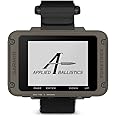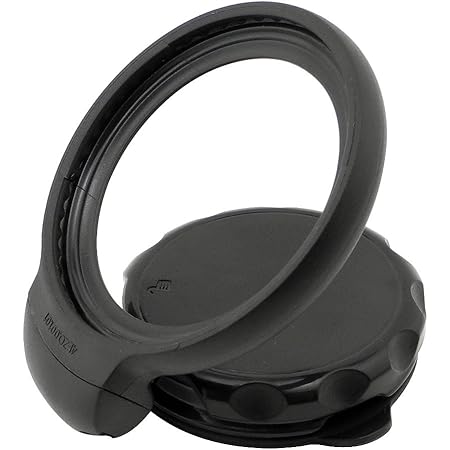Hitting the open road in your motorhome is a dream for many, but navigating those winding highways and byways requires more than just a good map. A dedicated motorhome GPS navigator is your co-pilot, ensuring a safe and stress-free journey. But with so many options available, choosing the right one can feel overwhelming. This guide will delve into the essential features you’ll love in a motorhome GPS, helping you make an informed decision for your next adventure.
Why Motorhome-Specific Navigation Matters

Standard car GPS units simply won’t cut it for the unique challenges of motorhome travel. Your RV is significantly larger and heavier than a car, meaning bridges, tunnels, and even sharp turns might be impassable. A motorhome GPS, designed with these limitations in mind, accounts for your vehicle’s dimensions, weight, and payload capacity, providing routes that are safe and feasible. Forget those frustrating detours and last-minute route changes – a dedicated system plans ahead, saving you time and stress.
Crucial Features of a Top-Rated Motorhome GPS
Several key features distinguish a great motorhome GPS from the rest. Let’s explore some of the most important:
1. Accurate Route Planning Considering Vehicle Dimensions
This is arguably the most crucial feature. Inputting your RV’s exact dimensions – length, height, width, and weight – ensures the GPS avoids routes with low bridges, narrow streets, or sharp turns that could lead to damage or accidents. Some advanced systems even allow for the input of additional parameters, such as the size of any towed vehicles.
2. Extensive Points of Interest (POIs) Database
Finding RV parks, dump stations, repair shops, and other amenities specifically tailored to motorhome needs is vital. A robust POI database simplifies this process, offering detailed information and user reviews to help you make informed decisions about where to stop for the night or to access necessary services.
3. Offline Maps and Navigation
Cellular service isn’t always reliable, especially in remote areas. Offline maps are a must-have for reliable navigation, ensuring you won’t get lost when your connection drops. Look for a system with large, easily downloadable map areas to cover your entire journey.
4. Integration with Your Smartphone and Other Devices
Seamless integration with your smartphone via Bluetooth or WiFi allows for hands-free calling, music streaming, and easy access to other helpful apps. Some advanced systems even allow for integration with your RV’s onboard systems for monitoring fuel levels or other vital information.
5. User-Friendly Interface and Large Display
A clear, easy-to-navigate interface is essential, especially during challenging driving conditions. A large display screen makes it easy to see directions and other crucial information at a glance. Look for a system with intuitive controls and customizable settings to tailor the experience to your preferences.
Torque and Towing Capacity: Why it Matters

While not a direct feature of the GPS, understanding the torque and towing capacity of your motorhome is critical for safe and effective route planning. Torque, the rotational force of the engine, is crucial for climbing hills and overcoming other challenges. A motorhome with low torque may struggle on steep inclines, and your GPS should ideally be able to account for this, choosing routes that minimize such challenges.
Your motorhome’s towing capacity dictates what you can safely tow behind your RV. Always ensure your chosen GPS allows you to input this information for accurate route planning that considers the combined weight and handling characteristics of your motorhome and any towed vehicles. Some systems even integrate with weight scales for precise measurements.
Engine Options and Their Impact on Navigation
Your motorhome’s engine type – gasoline, diesel, or propane – can significantly impact its performance and fuel efficiency. While your GPS doesn’t directly control this, it’s crucial information for optimal route planning. Some advanced systems allow you to input your engine type, factoring in fuel consumption rates and potential performance limitations on hilly terrain.
Specific Torque and Towing Specs Comparison (Example)

Let’s hypothetically compare two popular motorhome models (remember these are examples and actual specifications vary):
Model A: 350 hp, 750 lb-ft torque, 10,000 lb towing capacity.
Model B: 400 hp, 600 lb-ft torque, 8,000 lb towing capacity.
Though Model B has higher horsepower, Model A’s superior torque makes it potentially better suited for mountainous regions. A good GPS system would recognize this difference and offer route suggestions accordingly. Similarly, the towing capacity difference would influence route choices, preventing the selection of routes that would overload Model B.
Comparing Motorhome GPS Navigators

Several brands offer excellent motorhome GPS systems. Researching and comparing features like map accuracy, POI databases, ease of use, and offline capabilities is key. Consider reading reviews from other RV owners to get firsthand experiences before making a purchase. Some popular brands to consider include Garmin, Rand McNally, and Magellan, each with its own strengths and weaknesses.
Practical Advice for Using Your Motorhome GPS
* **Always input your RV’s exact dimensions:** This is the most important step for accurate routing.
* **Update your maps regularly:** New roads and changes in infrastructure can impact route calculations.
* **Plan your route in advance:** This allows you to identify potential challenges and make adjustments before you hit the road.
* **Familiarize yourself with the GPS’s features:** Take time to learn the system’s functionalities before your trip.
* **Always account for unforeseen circumstances:** Even the best GPS system can’t predict every eventuality; be prepared for potential delays or route changes.
Investing in a quality motorhome GPS is an investment in a safer and more enjoyable RV experience. By understanding the crucial features and selecting a system that suits your needs and RV specifications, you can confidently explore the open road, knowing that your dedicated navigator has your back – and your RV’s dimensions – in mind.